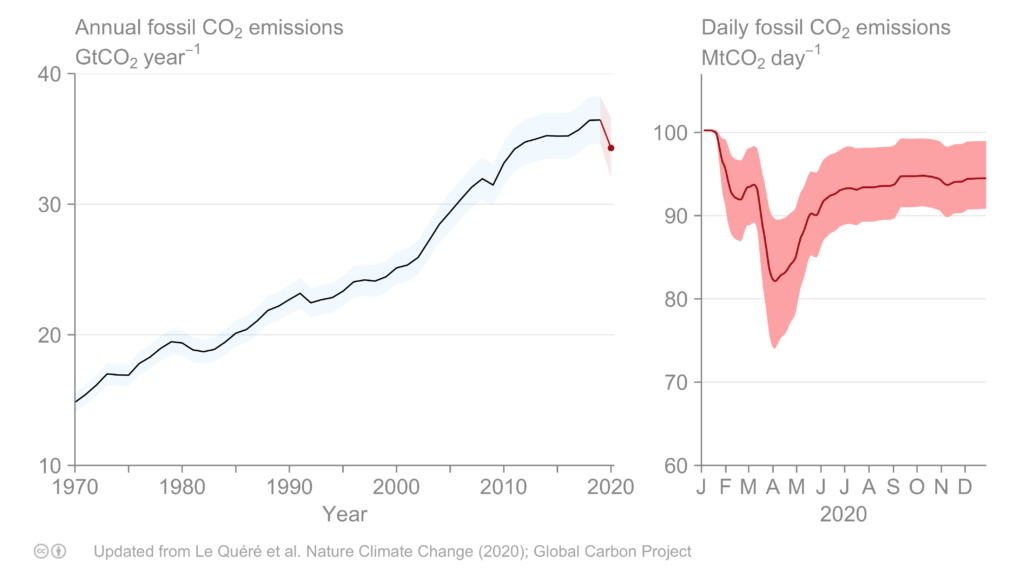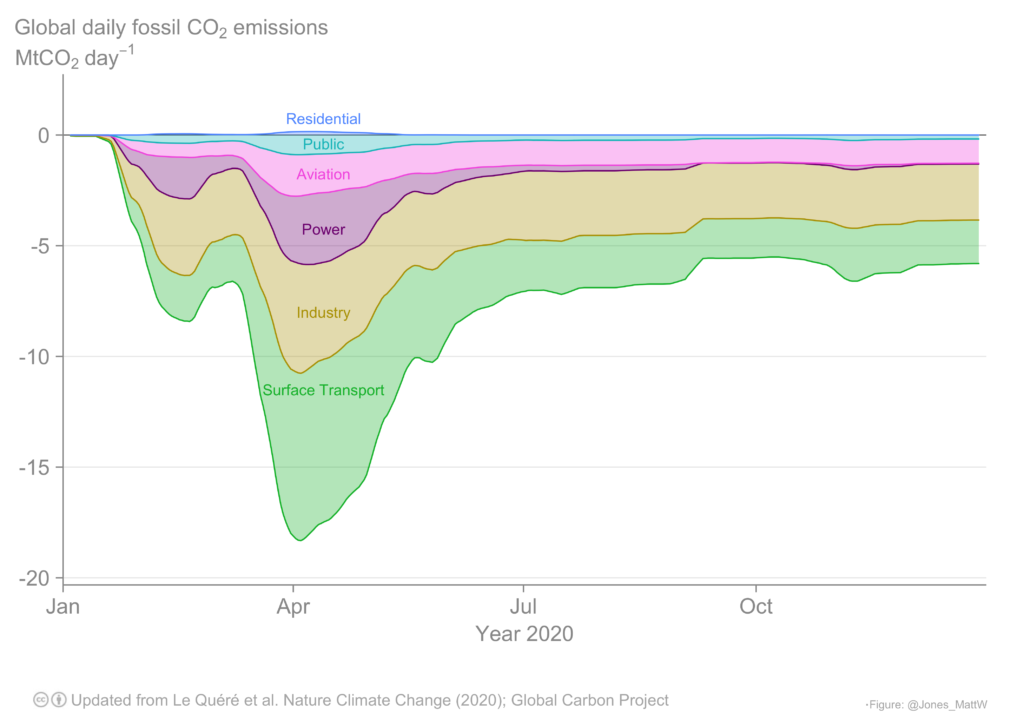11 December 2020
Sophie Schmidt
The Global Carbon Budget is supported in part through funding from the Earth Systems and Climate Change Hub of the Australian Government’s National Environmental Science Program. Pep Canadell contributes to ESCC Hub Project 5.6.
The Global Carbon Budget, released today, has found that global fossil CO2 emissions in 2020 are expected to decline by approximately 7% in 2020 (relative to 2019).
Dr Pep Canadell, executive director of the Global Carbon Project, and project leader through the NESP Earth Systems and Climate Hub, said that the COVID-19 pandemic has seen a drop in emissions about five times larger than that of the Global Financial Crisis in 2008.

2020 saw an unprecedented drop in global fossil carbon dioxide emissions.
“A decrease in emissions of 2.4 billion tonnes of CO2 has never been seen before,” said Dr Canadell.
“The about 7% decline in global fossil CO2 emissions brings emissions down to 34 billion tonnes of CO2 (GtCO2).”
The 2020 slowdown in global fossil CO2 emissions was caused by worldwide COVID-19 confinement measures. Emissions reached their peak decline in early April, with a 17 per cent decline compared to the same time last year.
The findings are consistent with research from the Global Carbon Project earlier this year. In May 2020, researchers predicted an estimated overall decrease by 7.5 per cent by the end of the year if countries would remain in lock down at varying levels.
Atmospheric CO2 levels continue to rise
The State of the Climate 2020 report, released last month by the Bureau of Meteorology and CSIRO, found that the slowdown in global fossil emissions in early 2020 will have negligible impacts in terms of climate change.
Current carbon dioxide levels monitored at the Cape Grim Baseline Air Pollution Station are at 410.9 parts per million (ppm), marking around a 47 per cent increase from pre-industrial concentrations of 278 ppm in 1750.
Authors of State of the Climate warned that atmospheric CO2 is still increasing and has grown by about 2 ppm in 2020 at Cape Grim compared with 2019, despite the reduced emissions due to COVID-19.
Long-term cuts required to stabilise the climate
Researchers behind the Global Carbon Budget say that cuts in global emissions of the order of 1 to 2 billion tonnes of CO2 are needed each year between 2020 and 2030 to limit climate change in line with the Paris Agreement goals.
Animation from Future Earth and the Global Carbon Project. The global carbon budget visualised from 1870 to 2020. Credit: Concept by Rob Jackson, visualisation by Alistair Scrutton and Jerker Lokrantz.
According to Dr Canadell, it is too early to tell the extent to which emissions will rebound during 2021 and beyond as a result of lifting confinement levels.
As of December 2020, global CO2 emissions from road transport and aviation were still lower than December 2019 levels by approximately 10% and 40%, respectively.

Global daily fossil CO2 emissions stacked by sector. Emissions from the surface transport sector saw the most significant decrease. The daily emissions decrease peaked in early April.
More information
Global Carbon Budget 2020, by Pierre Friedlingstein, et. al. (2020), Earth System Science Data, 12, 3269–3340, 2020, DOI: 10.5194/essd-12-3269-2020.
Opportunities and challenges in using remaining carbon budgets to guide climate policy, by Mathews D.H. et. al. (2020), Nature Geoscience, 13, 769–779 (2020). https://doi.org/10.1038/s41561-020-00663-3

